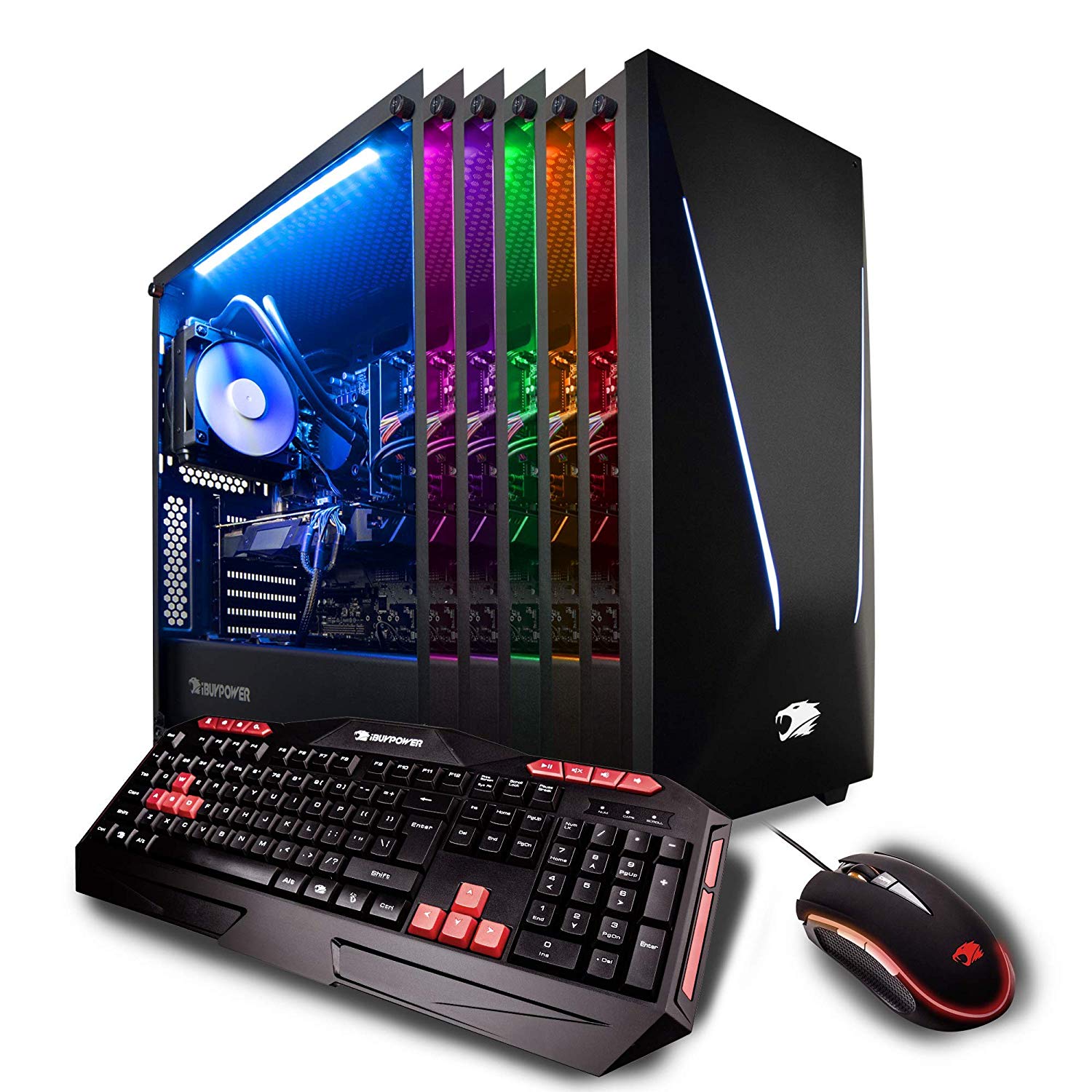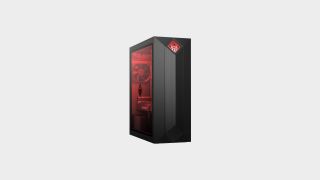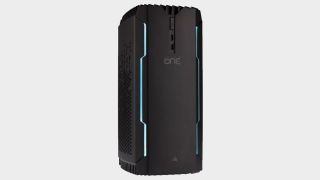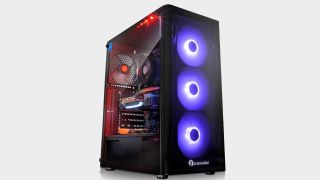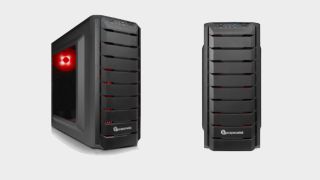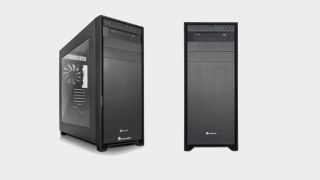Prebuilt gaming PC manufacturers have really been stepping up their game since the dawn of the RTX era, and sorting out which is producing the best gaming PC can be somewhat of a challenge. While any of these builders can theoretically stuff a bunch of blazing fast performance parts into a case and come away with a mighty gaming rig, the devil, as they say, is in the details. You need to pair that performance with excellent heat management, for instance, intelligent sinking and ventilation that doesn't cause your fans to kick out noise at the level of a V2 rocket launch. Price is king, of course, you really want to avoid paying too much of a premium versus the cost of building a machine yourself, but there are other critical features too, like cable management, inclusion of quality proprietary parts, and warranty. To sort out how we figure out which machines make the cut, check out our gaming PC testing guide.
What should you be looking for when you start shopping for the best gaming PC? Obviously, the best graphics card should be top of mind, and that can mean different things for different people. Gamers obviously will need something at least relatively capable to handle the best PC games, but there are additional considerations, like whether or not you're sold on Nvidia's predicted ray tracing future. If you are, you'll like want to invest in one of their RTX cards (while ray tracing support is coming to GTX Pascal architecture, it'll never match the performance derived from the RTX line's dedicated ray tracing cores). However, if ray tracing isn't a priority, you can save yourself some cash and invest in a machine built around a GTX or one of AMD's card.
Given how increasingly important main processing is for games, you'll also want to avoid bottlenecks with one of models from our best CPU for PC gaming roundup. You'll want something in the Core i5 range as a baseline, but if you plan on doing any significant amount of productivity work on your machine you should really opt for a higher end CPU, something in the Core i7-8700 to Core i9-9900K range.
Best gaming keyboard | Best gaming mouse | Best controller for PC gamingBest gaming chair | Best graphics card | Best gaming monitor

1. HP Omen Obelisk | 2080 spec
The best gaming PC right now - balances price and performance
CPU: Intel Core i7-8700 | GPU: Nvidia GeForce RTX 2080 | RAM: 16GB DDR4-2666 | Storage: 256GB M.2 SSD, 2TB HDD
Trim, sleek machine that cuts frills to save money
Performance powerhouse
None of HP's hot swappable storage bays
When it comes to pre-built PCs you need to find a reputable brand that will fill your new gaming rig with the best parts, in the best configurations. For us, HP's Omen range are the best gaming PCs, not because they offer incredible power, or because they're the cheapest, but because they balance everything you need from a gaming PC. Let's start with the chassis - the Obelisk is a mid-tower case, with a lovely glass panel on the side for displaying all your innards. It has tasteful lighting inside, but nothing too excessive. There is sufficient cooling for even the highest end builds, and the case isn't too massive either. It's a nice balance.
Inside, we recommend the spec with the 2080 graphics card, if you want to keep this gaming PC for the long-term. The top end of Nvidia's new Turing cards all handle ray tracing, which is very much the future of visuals in games, and while the 2080 is super expensive (probably about 40% of the cost of this whole PC), they will last. The supporting specs perfectly compliment the card - an i7-8700 6 core CPU, 16GB of 2666 RAM, and a dual storage solution with a 256GB SSD and a 2TB HDD. Ok, in a perfect world, you'd have a 500GB SSD, but this is still more than enough to make Windows booting quick and easy.
There's tool-less access to the case, so you can dive in there and swap out parts if you feel like some quicker RAM or a bigger SSD. In all, it's an impressive machine, and one that's flexible enough for easy upgrades if you need. There are few frills - custom RGB lighting aside - which is why the price is so reasonable, for a 2080 build. Thoroughly recommended.

2. Corsair One i160 | 2080 Ti spec
The best small-form gaming PC, with incredible power
CPU: i9-9900K | Graphics: RTX 2080Ti 11GB | RAM: 32GB DDR4 | Storage: 2TB HDD + 480GB SSD
Super powerful 2080 Ti GPU
Lovely, compact design
Runs almost silent
You're going to need a bigger bank balance
No way for users to upgrade without going through Corsair
If money is no object, then the Corsair One series is our pick of all gaming PCs. While the i140 is more than capable of handling games at 4K, we prefer the i160 for sheer power and gaming prowess. What's truly remarkable about the Corsair One PC line is that they pack in such power components into such a small, custom-built case, and still allow everything to run quiet and cool. The case itself has holes on each side, and fans under the unit to allow adequate airflow, along with several other cooling systems inside. As a result, the machine is whisper quiet and small enough to fit into a typical living room set-up without hogging too much space.
Inside, everything is thoughtfully built. There's a quick i9-9900K CPU, meaning the One is perfect for multitasking, so can handle video editing and art tools extremely well, along with gaming. The 2080 Ti GPU inside is top of the range, and will smash any game at 4K, while the 32GB of RAM keeps the whole system held together rather nicely. There's a big enough SSD / HDD combo (480GB SSD / 2TB HDD) to ensure you have plenty of storage for games, although, again we'd expect a slightly larger SSD for the money. You can swap components into the One, but that will invalidate the warranty, so you'd need to be confident about doing so. It's easy enough to do.
As small form-factor gaming PCs go, this is a monster, and thoroughly recommended for gaming. If you want to shave a few £s off your budget, the i140 is a great performer too, but given that you'd expect this PC to last you for years, we'd definitely pick the slightly higher-spec machine.

3. MSI Trident 3 | 1050 Ti spec
The best budget gaming PC
CPU: i5-7400U | Graphics: GTX 1050Ti 4GB | RAM: 8GB DDR4 | Storage: 1TB HDD
Decent price for the spec
Plenty of storage
Will run most games at 1080p
Not a great GPU
No SSD storage
Not VR ready
If money really is tight, you should consider the MSI Trident 3 range of gaming PCs. While the innards won't win any awards, they're reliable pieces of kit that are well put together and often found at £700+ prices, which is really good for a gaming-ready PC. They come with smartly designed cases, and decent cooling tech to prevent your components from overheating if you stress them and boost the CPU clock to 3.5Ghz.
The 1050 Ti graphics card is the weakest link here, and while you'll run most games at 1080p, you'll likely struggle to reach decent fps with top titles, and won't be able to achieve ultra settings in many cases. Does that matter to you? After all a machine like this is perfect for Fortnite and will run Apex Legends with few problems. It comes with a decent-sized 1TB HDD, and 8GB of DDR4 RAM, which is plenty for most games. The i5 processor is actually a decent one for a build of this price.
You also sacrifice things like glass side-panels on the case, and RGB lighting, but you can easily open up the Trident to add new components if you feel up to it. What's more, the Trident is quite portable, and it will operate stood up, or lying on its side, if space is a concern. It's not a powerhouse, but is a competent gaming PC for a super reasonable price. Just don't pay more than £700 for it.

4. PC Specialist Vanquish Zen Fury | 2070 spec
The best AMD gaming PC out there
CPU: AMD Ryzen 5 2600X | Graphics: RTX 2070 8GB | RAM: 16GB DDR4 | Storage: 256GB SSD / 1TB HDD
Great value for a 2070 spec PC
Generous storage
Looks lovely, performs well
Not really a 4K machine
Not as powerful as most 2080 machines
While Intel is the biggest and best name in CPUs, AMD - its main rival - has several comparable chipsets which perform equally well, and come much cheaper. So, we've included an AMD build here, to help you save a bit of cash on a great spec gaming machine. If you're looking to use your PC primarily for gaming, with maybe a little work and other media usage, you'll be more than fine with an AMD processor powering everything.
Elsewhere inside this PC Specialist build you get a lot of powerful components for your money. Whereas the RTX 2070 graphics card is neither the most powerful, nor the cheapest of the new ray tracing GPUs, it does offer great performance for games, while keeping the overall price of the unit down. It's complimented here by 16GB of DDR4 RAM and a standard 256GB SSD / 1TB HDD combo. For the price, that seems about right to us.
PC Specialist uses decent components too, so you won't be sold the cheapest parts in these machines. This gaming PC will easily handle the best games at 1080p, and bring decent frame-rates to most (60fps+ in most cases). Well recommended for pure gaming.
5. Do it yourself!
Normally, this is the point where we recommend another couple of pre-built PCs and end the article. However, that's no fun, and quite frankly we've got a better alternative for you. Over at UK-based site, PC Specialist, you can create your own PC from a series of easy to understand options, which guide you through the process if you're curious about it all, but don't have the confidence to literally build your own gaming PC from scratch. We'd recommend experimenting with some parts, like storage and cases, based on your own needs and budget but we've listed a couple of suggested builds below, based on our expertise. The top one is a budget gaming PC, that will get you the best spec for less than £1000. The lower one is a high-spec gaming machine that we'd use ourselves, with sensible (but not excessive) components inside. Take a look with confidence - the website will actually warn you if certain components are incompatible.
PC Specialist in the UK
Budget build - total cost: £1001

Select your gaming PC from the Intel Z370-Z390 menu.
PCS CYCLONE GAMING CASE (Red LED Fans) Intel® Core™ i5 Six Core Processor i5-8500 (3.0GHz) 9MB Cache ASUS® PRIME Z370-P II: ATX, LGA1151, USB 3.1, SATA 6GBs 16GB Corsair VENGEANCE DDR4 2400MHz (2 x 8GB) 6GB NVIDIA GEFORCE RTX 2060 - HDMI, DP - VR Ready! 2TB SEAGATE BARRACUDA SATA-III 3.5" HDD, 6GB/s, 7200RPM, 256MB CACHE CORSAIR 550W VS SERIES™ VS-550 POWER SUPPLY Everything else as per PC Specialist standard Full gaming PC build - total cost: £3452

Select your gaming PC from the Core i7/i9 Extreme computers menu.
CORSAIR OBSIDIAN SERIES™ 750D FULL TOWER CASE Intel® Core™ i9 12 Core Processor i9-9920X (3.5GHz) 19.25MB Cache ASUS® ROG STRIX X299-E GAMING: ATX, USB 3.1, SATA 6 GB/s, WIFI - RGB Ready 32GB Corsair VENGEANCE DDR4 3000MHz (2 x 16GB) 11GB NVIDIA GEFORCE RTX 2080 Ti - HDMI, 3x DP GeForce - RTX VR Ready! 2TB SEAGATE BARRACUDA PRO 3.5", 7200 RPM 128MB CACHE 500GB WD Black™ SN750 M.2 NVMe SSD (up to 3470MB/s R | 2600MB/s W) CORSAIR 750W TXm SERIES™ SEMI-MODULAR 80 PLUS® GOLD, ULTRA QUIET Noctua NH-U14S Ultra Quiet Performance CPU Cooler 2x 50cm RGB LED Strip NZXT GRID+ V3 Fan Controller with up to 5 Fitted Case Fans 3x Corsair LL120 RGB LED Fan + Controller Kit ASUS PCE-AC88 AC3100 2100Mbps/5GHz, 1000Mbps/2.4GHz Everything else as per PC Specialist standard Some online stores give us a small cut if you buy something through one of our links. Read our affiliate policy for more info.
 Giant Bomb
Giant Bomb  Asmodee Digital
Asmodee Digital  Subset Games
Subset Games 
 Devolver Digital
Devolver Digital 
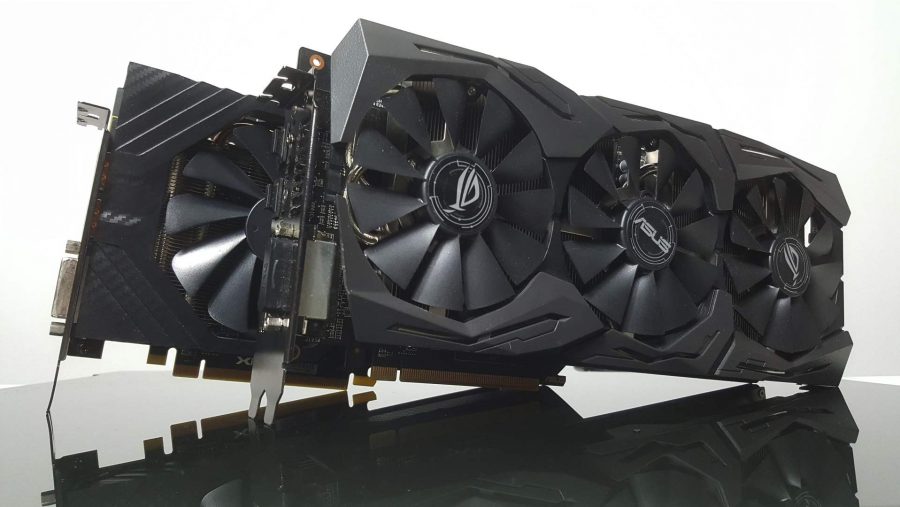
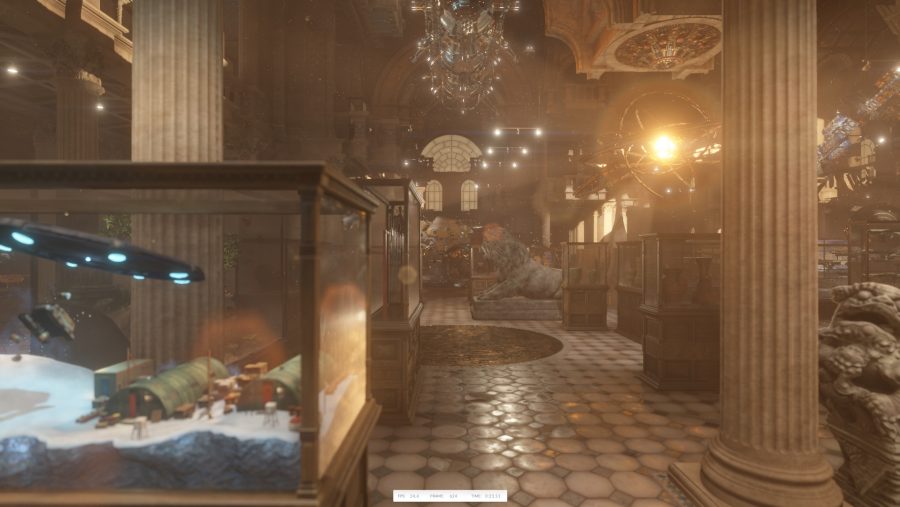
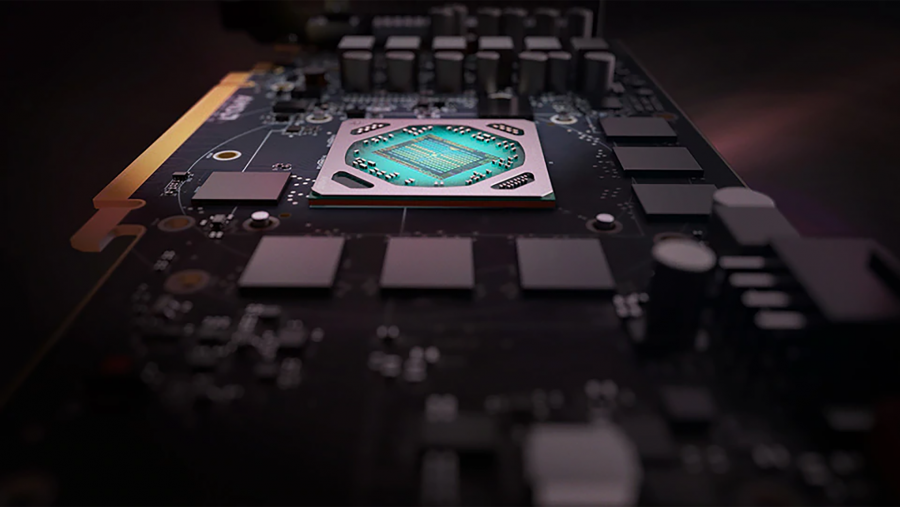
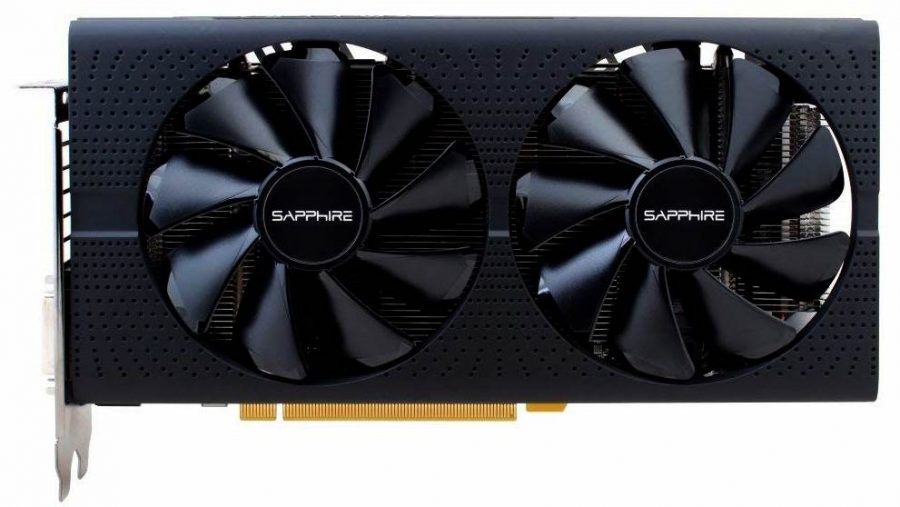
 EVGA GeForce GTX 1660 XC Ultra
EVGA GeForce GTX 1660 XC Ultra 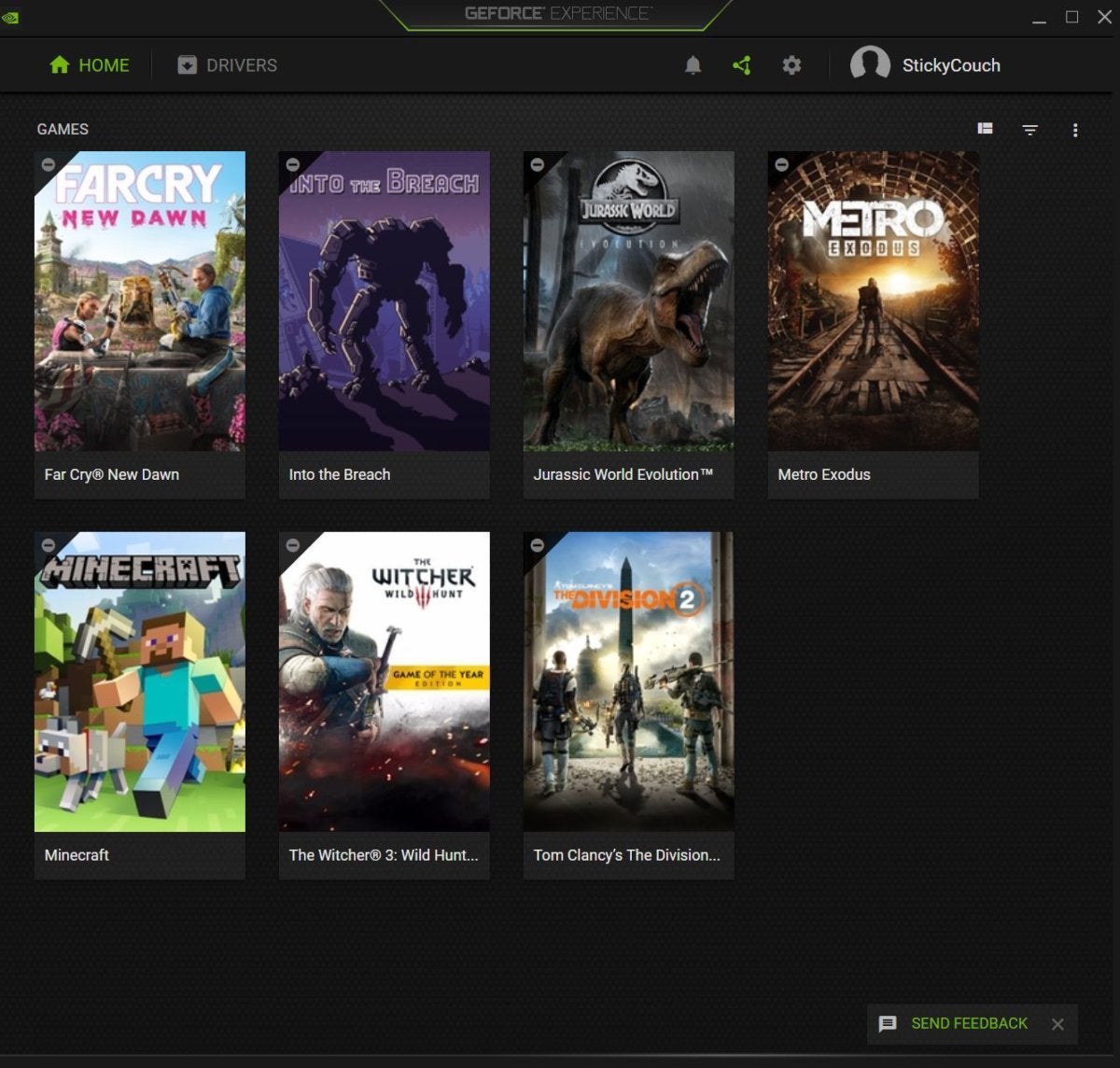 Brad Chacos/IDG
Brad Chacos/IDG 


